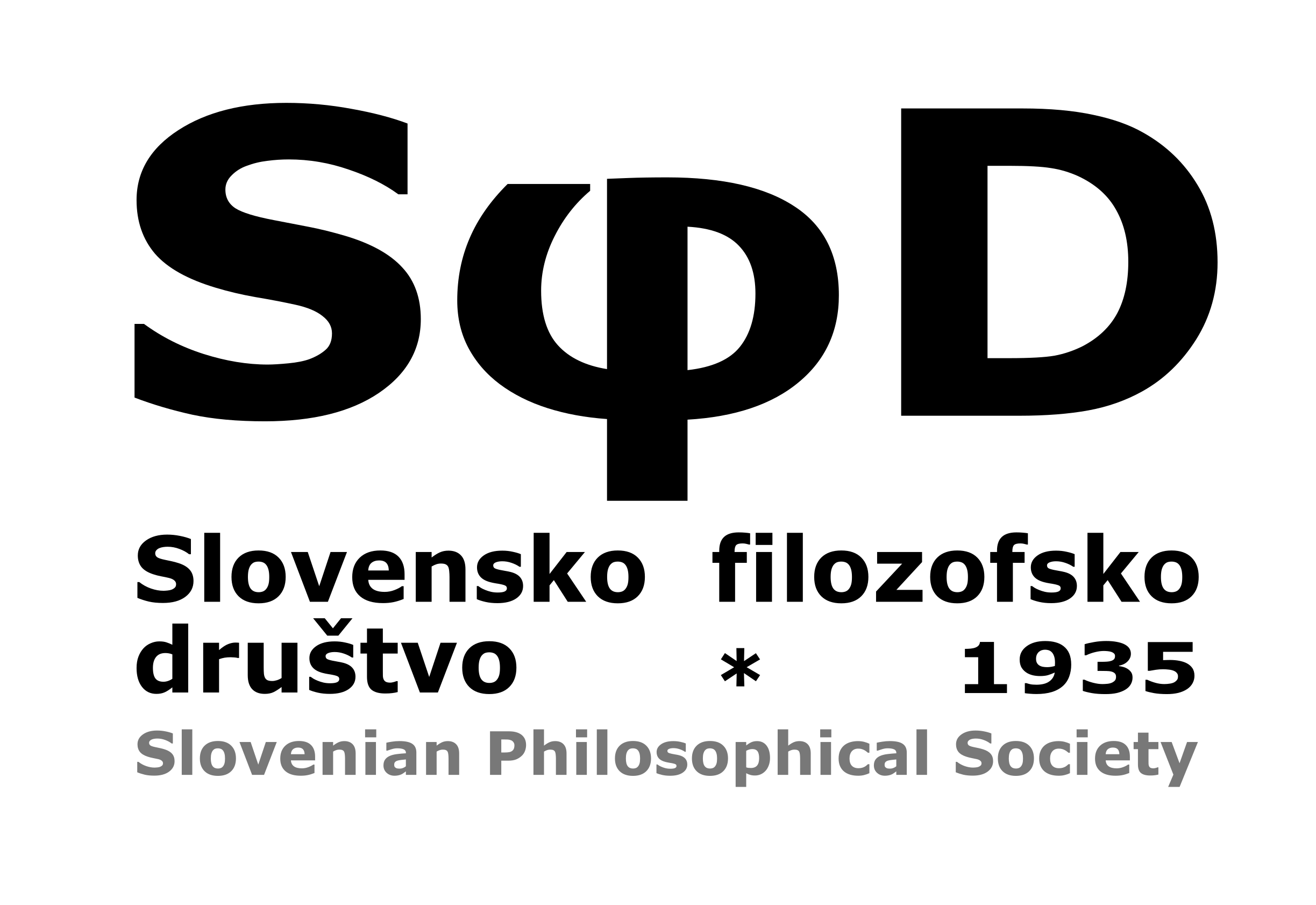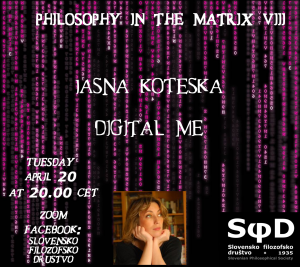Vabimo vas na osmi večer v sklopu serije Filozofija v matrici, kjer se nam bo predstavila Jasna Koteska, priznana makedonska filozofinja in pisateljica ter članica Makedonskega filozofskega društva, s katerim SFD uspešno sodeluje na več ravneh. Koteska ni le ugledna akademičarka doma, temveč tudi podpornica kulturnega in izobraževalnega dela v Sloveniji, kjer je že leta 2008 izdala zbirkov filozofskih esejev Intimist. Do zdaj je izdala 12 knjig, v katerih se je dotaknila tako različnih tematik kot so psihoanaliza, študije spola, konzumerizem in komunizem, v minulem obdobju pa skupaj z uglednim fizikom in matematikom Ljupcom Kocarevim raziskuje ontologijo in etiko umetne inteligence.
Na dogodku z naslovom “Digital me ontology and ethics” nam bo Koteska tako predstavila izsledke aktualne in vse bolj pertinentne raziskave, ki v času splošne digitalizacije tudi v humanistiki ponuja določene odgovore na vse pomembnejša vprašanja. Dogodek bo potekal v torek, 20. aprila 2021 ob 20. uri. Kot vselej bomo dogodek prenašali na Facebooku profilu Slovenskega filozofskega društva, člani pa si ga bodo lahko ogledali neposredno preko aplikacije Zoom. Prispevek, iz katerega bo v predavanju črpala prof. Koteska, si lahko ogledate na sledeči povezavi, povzetek raziskave pa sledi spodaj:
“This paper addresses ontology and ethics of an AI agent called digital me. We define digital me as autonomous, decision-making, and learning agent, representing an individual and having practically immortal own life. It is assumed that digital me is equipped with the big-five personality model, ensuring that it provides a model of some aspects of a strong AI: consciousness, free will, and intentionality. As computer-based personality judgments are more accurate than those made by humans, digital me can judge the personality of the individual represented by the digital me, other individuals’ personalities, and other digital me-s. We describe seven ontological qualities of digital me: a) double-layer status of Digital Being versus digital me, b) digital me versus real me, c) mind-digital me and body-digital me, d) digital me versus doppelganger (shadow digital me), e) non-human time concept, f) social quality, g) practical immortality. We argue that with the advancement of AI’s sciences and technologies, there exist two digital me thresholds. The first threshold defines digital me having some (rudimentarily) form of consciousness, free will, and intentionality. The second threshold assumes that digital me is equipped with moral learning capabilities, implying that, in principle, digital me could develop their own ethics which significantly differs from human’s understanding of ethics. Finally we discuss the implications of digital me metaethics, normative and applied ethics, the implementation of the Golden Rule in digital me-s, and we suggest two sets of normative principles for digital me: consequentialist and duty based digital me principles.”

